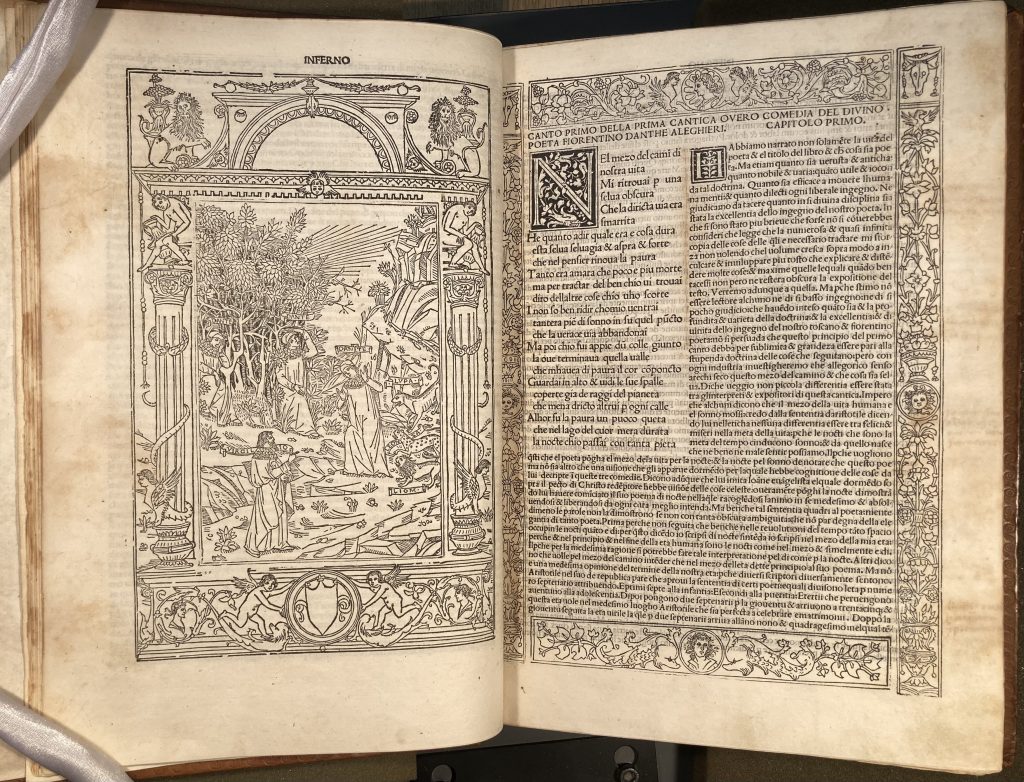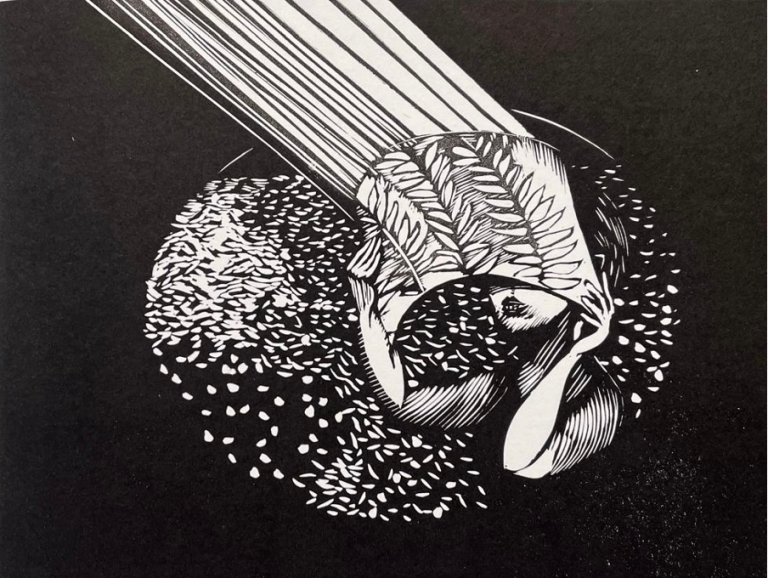Special Collections Exhibition | Taylor Institution Library | University of Oxford
14 – 26 June 2024
When we pick up a book, we often forget that as well as reading a text we are looking at an object. Unlike the relative intangibility of words, which dwell in our minds and memories as well as on the page, screen, or writing surface before us, books are things, they have a physical presence in the world and a material history to go along with it. Some books call out to be seen, maximising their visual appeal with images or interesting layouts. This is certainly the case for the history of Dante’s medieval masterwork, the Commedia—known as the ‘Divine Comedy’ in English. An intensely envisioned journey through the three realms of the Christian afterlife (Inferno, Purgatory, and Paradise), Dante’s poem, written in the early 1300s, was the subject of vivid illustrations from its earliest circulation and, when book making transitioned into the new medium of print in the late 1400s, Dante’s poem became the source of inspiration for new visual traditions.
Seeking to see some of these early printed Dantes in more detail and to explore the meanings these books may still hold for us today, two University of Oxford specialists in Dante Studies and Book History, Rebecca Bowen and Simon Gilson, invited the artist and printmaker Wuon Gean-Ho to examine and respond to Renaissance editions of the Commedia held in the special collections of the University of Oxford’s Taylor Institution Library.
Building towards an exhibition of new works, made in conversation with these historical books, Rebecca, Simon and Wuon-Gean exchanged ideas about the history and content of the renaissance Dantes as well as the material and artistic processes that brought them into being. Through a series of encounters in the archive, they explored the physical spaces of the Taylor Library and the printshop that operates today in the Old Bodleian Library. Traversing these real-life Oxford locations, the imagined spaces of Dante’s poem and the printed pages of the renaissance books, the three readers embarked on a journey through Dante’s afterlife in print.

The resulting works by Wuon Gean-Ho offer an embodied response to Dante’s poem and to the archives and library spaces that conserve it. In a series of new lino cuts, Wuon-Gean immerses us in her experience as a reader, envisioning Dante’s poem as it moves from the pages of the book out into the spaces of the library and the printshop, taking root in her imagination and reappearing on the sheets of paper that she inked and printed in the Bodleian Bibliographical Press. From the darkness of Inferno and its wrenching parallels with contemporary conflicts, to the passionate embraces that occur throughout the text, Wuon-Gean’s works dive into themes of morality and aspiration, through love and adoration, to regret and contemplation, reflecting a modern reading of Dante captured in the same artistic medium that, since the late 1400s, has preserved the poem for readers to this day: print.
Wuon-Gean’s artworks will be on display alongside the five-hundred-year-old books that inspired them (the renaissance editions of Dante’s Commedia) at the Taylor Institution Library. The exhibition will be launched with a public conversation between the artist and her academic collaborators followed by a tour of the exhibition and a small drinks reception on Friday 14th June 2024 at 5.15pm. This event is free but booking is required. To secure your place please email rebecca.bowen@mod-langs.ox.ac.uk.
Public tours of the exhibition will be held on Saturday 15th June 2024 at 11am, 12.30pm, and 3pm. To book a spot or to order a copy of the exhibition catalogue, which includes reproductions of Wuon-Gean’s artworks and of the Taylorian’s Renaissance copies of Dante, as well as new essays by the three collaborators, please email rebecca.bowen@mod-langs.ox.ac.uk.
Title Image: Dante – Shield (2023) by Wuon-Gean Ho. Linocut and monoprint. 15 x 20cm
